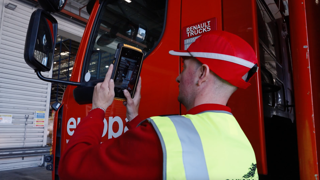Leasing companies and pricing experts are predicting that the used car value bubble is likely to burst, while a booming new car market will increase the pressure.
Lower residual values would mean an increase in contract hire and leasing rates, particularly for leasing companies that took too optimistic a view on values when setting rates three or four years ago.
Last month, the Society for Motor Manufacturers and Traders (SMMT) increased its new car registrations forecast for 2014, from January’s estimate of 2.293 million to 2.403m – an increase of 110,000 units.
More than half of those registrations will be company cars, while an increasing number of private sales are through personal contract purchase (PCP) deals.
That will result in more cars hitting the used market at the same time which could threaten RVs, said Rupert Pontin, chief car editor at pricing experts Glass’s.
He told Fleet News: “The net effect of this in the immediate future is that residual value experts would be looking to take a more cautious view and set lower residuals, which in turn would mean higher contract hire and leasing rates.
“Those that do not adopt this course of action put themselves at risk of failing to meet those forecasted values and costing their business money.”
However, for the time being the used car market remains relatively buoyant. It returned a record rise for the second month running in the fleet and lease sector. Fleet and lease cars averaged £9,642 in April, up 0.5% compared with March, according to figures from British Car Auctions (BCA). The average price is now £1,032 (12%) higher, year-on-year.
However, the figures also reveal CAP performance fell by nearly three percentage points over the month to 95.67%, while it was still ahead year-on-year. Retained value against original MRP (manufacturers’ retail price) fell by nearly a percentage point to 43.05% compared to March, which is an increase of one percentage point year-on-year.
Today’s used car market clearly continues to prosper thanks to a shortage of stock from the 1.941m vehicles that were registered in 2011. The SMMT forecast for this year’s new car market is 24% or 462,000 units higher.
It will be a question of supply and demand, said Steve Jones, LeasePlan’s general manager for asset risk. He believes that the injection of additional vehicle stock may not hit the market so hard if demand is on the rise.
He said: “Ultimately, residual values also depend on used car demand in the marketplace and recently we have seen a strong market for used vehicles, which has been exacerbated by low supply.
“We know from registration volumes that the supply is likely to increase, but we also appear to be on the verge of real growth, with people’s disposable incomes starting to rise.”
As a result, LeasePlan expects leasing rates to remain relatively stable for the rest of the year. “If there is excess stock, this could lead to specific special offers,” said Jones. “However, we wouldn’t expect to see most manufacturers change their standard corporate pricing.”
Ben Newton, pricing manager at Lex Autolease, believes the effects will start to be felt in 2015. He said: “We ought still to recognise that used car values are particularly high at the moment, with Black Book values peaking in 2013 after supply constraints over used fleet vehicles in previous years.
“We anticipate that, come 2015, the current popularity of two-year PCP deals will result in an increase of two-year-old vehicles into the used market. Combined with increased volumes of ex-fleet vehicles, this will create yet more downward pressure on used car values.”
CD Auction Group has decided the time is right to launch its ‘Fleet Crystallisation’ programme, offering fleets a guaranteed value at defleet and removing, it says, the ‘risk’ of the auction process (fleetnews.co.uk, May 15).
It will offer the fleet an agreed buyback value, determined within 56 hours of inspection at an agreed price. Valuations will be based on a vendor’s fleet profile, previous sale results and typical returns at CD Auction Group sales.
Managing director Roger Woodward said: “This could improve trading conditions across the industry.”



















Login to comment
Comments
No comments have been made yet.